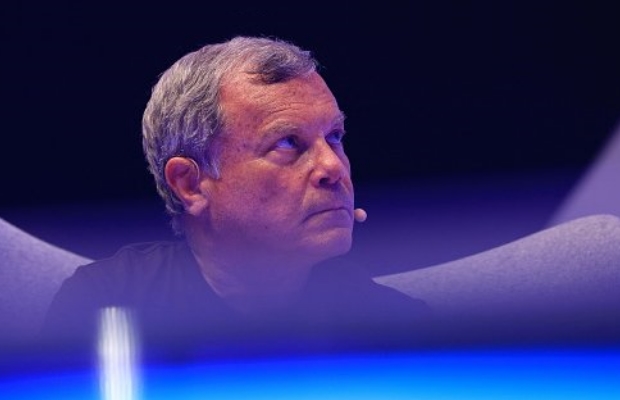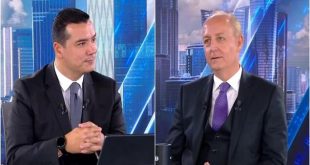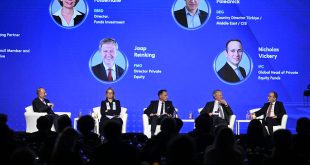Corporate America is shrinking—at least by one important measure. In five of the six quarters to June 2016, across the S&P 500, share buy-backs and dividends exceeded retained earnings.
From around 60% in 2009, the ratio of payouts and buy-backs to earnings has risen inexorably, passing 100% at the beginning of 2015 and reaching a staggering 131% in the first quarter of 2016.
If you imagine the S&P 500 to be one company, that company ceased to grow at the start of last year and shrank by nearly a third in the first three months of 2016. While the FTSE 100 may not have gone into reverse, a similar trend can be observed. The dividend-payout ratio has climbed from less than 40% in 2011 to over 70% in 2016.
Unsurprisingly in this context, corporate investment as a proportion of GDP has continued to decline. Businesses are choosing to return funds to shareholders rather than invest them back into their operations. Yet there is no shortage of cash to invest. Companies are estimated to be sitting on more than $7 trillion of net cash worldwide—a form of corporate inertia that will continue into 2017 and beyond.
So why are firms refusing to spend? The collapse of Lehman Brothers, and the carnage that followed, left deep scars on the collective corporate psyche. It has fundamentally changed the attitude to risk of an entire generation of executives.
The past eight years have been an era of low inflation, low pricing power and low growth, with disruption coming from all directions—from tech startups to activist investors and zero-based budgeters. The average managerial life expectancy of a CEO in America is between six and seven years. This falls to between five and six years for a chief financial officer and a mere two to three years for a chief marketing officer.
At the same time, a great flock of geopolitical grey swans (known unknowns) clouds the horizon, draining confidence: the global rise of populism, accompanied by ever-greater mistrust of institutions and corporations; intractable conflicts from Ukraine to the Middle East; the migrant crisis; terrorism. The slowing of major economies like Brazil and China, fiscal-deficit issues in America and Europe, and the eventual reversal of policies on quantitative easing and low interest rates also play on the minds of business leaders.
Businesses hardly needed another reason to put off or cancel investments. And then along came Brexit. Its full impact will only be known years down the line. The divorce could take the best part of a decade. The likely consequence is slower growth than would otherwise have been the case. And that’s before the potential independence domino effect: renewed calls for Scotland to leave the United Kingdom, and the possible disintegration of the European Union.
This cocktail of pressures is not conducive to long-term strategic thinking, and the financial world’s obsession with quarterly results doesn’t help. One survey revealed that nearly 80% of executives admit they would “take actions to improve quarterly earnings at the expense of long-term value creation”.
In this environment, procurement and finance departments (rather than growth-drivers such as marketing and R&D) have the whip hand. Risk-aversion and short-termism rule in the world’s boardrooms. This attitude is entirely understandable—and entirely wrong. Calculated risk-taking, in the form of investment, is the lifeblood of any business that wants to be successful in the long-term.
This is particularly true when it comes to investment in brands—usually a company’s most precious asset. If you were to treat the world’s ten most valuable brands from the past ten years (as measured by Millward Brown’s annual BrandZ survey) as a stock portfolio, it would have outperformed the S&P 500 index by almost 75% and the MSCI World index by more than 400%.
I don’t expect companies to undergo a Damascene conversion in 2017. But there’s a chance we will see the beginning of a change for the better. Powerful institutions, including BlackRock, Legal & General and the British government, are pushing for a different approach—one based on investment in growth over the long term rather than slicing costs to meet quarterly forecasts.
An initiative launched by McKinsey and the Canada Pension Plan Investment Board in 2013, called Focusing Capital On The Long Term, is set to gather speed in 2017. In July it appointed its first CEO, who will lead its development into a not-for-profit global organisation dedicated to encouraging long-term approaches in business and investment.
Projects like this may be the first steps towards restoring the animal spirits that have been so conspicuous by their absence in the post-Lehman years. The long-term health of the global economy depends on it.
By Sir Martin Sorrell
This article was first published in The Economist – The World in 2017
Photo: Getty Images
 Barış Öney Barış Öney'in Kişisel Web Sitesidir.
Barış Öney Barış Öney'in Kişisel Web Sitesidir.






